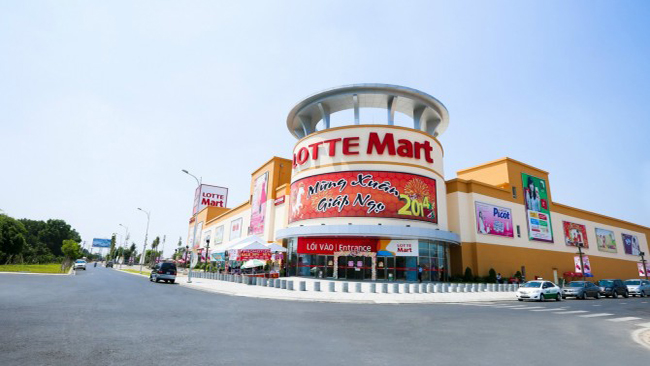Michelin leads the smart mobility revolution with data and AI
Michelin is undergoing a strong transformation by applying AI and smart analytic, helping lead the smart, safe, and sustainable mobility revolution in the Industry 4.0 era.




The mammoth Korean retail group, Lotte has no plan to leave Vietnam despite its current inefficient operation as the group targets to start making profit by 2020.

Lotte has just released its consolidated financial report for 2017 in which its revenue in Vietnam market continued to grow by 12 percent reaching $220 million, marking 11 consecutive years of growth.
Lotte Vietnam also known as Lotte Mart currently has 13 commercial centers with more than 3,000 employments over nine provinces in Vietnam.
The 11 years of revenue growth also accompanies with 11th consecutive years of Lotte of losses in Vietnam.
In particular, according to the report released by Lotte Vietnam on May 18, its accumulated losses in 2017 were nearly $35.2 million. Nevertheless, since Lotte Vietnam has a total equity of $70.3 million, this group is not yet out of capital.
"Lotte accepts to suffer loss in a short term so as to target for a long term. It is anticipated that by 2020, Lotte will start to gain profit in Vietnam market," a notice just released by the Lotte specified.
According to Lotte Vietnam, it is extremely normal to have operating losses in the early stage of commercial center development.
Since 2008, Lotte Mart has spent nearly $396 million investing in infrastructure, strategic location, modern equipment for 13 shopping centers and supermarkets together with a variety of business costs to induce competitive advantage and attract customers.
These are the initial costs that Lotte, as well as other foreign retailers, have to pay for investment activities in Vietnam.
On average, each shopping center or supermarket of Lotte needs a period of five to eight years from the opening to reach the break-even point. Commercial centers do not usually make profit instantly.
While most of its commercial centers have not yet been stabilized, Lotte Mart already continues to expand its retail activities, which helps increasing its revenue steadily over the years from $185 million in 2015 to $229 million in 2017.
Many of Lotte Marts have been operating effectively such as commercial centers in Districts 7 and Go Vap in Ho Chi Minh City, Da Nang city, Ba Dinh in Hanoi city, Nha Trang city, Vung Tau city, Can Tho city.
Nevertheless, many commercial centers of Lotte are not as efficient as initially planned at the time of the investment including Lotte Mart in Dong Nai, Binh Duong, Tan Binh in Ho Chi Minh City, Dong Da in Hanoi city.
In terms of overall performance, the success of these centers can not compensate for the inefficient ones and the initial investment costs.
Despite all this, Lotte conglomerate committed to a long-term investment in Vietnam and denied that the group is considering selling its entire business in Vietnam to cut losses.
Michelin is undergoing a strong transformation by applying AI and smart analytic, helping lead the smart, safe, and sustainable mobility revolution in the Industry 4.0 era.
LG Innotek Vietnam Hai Phong secured a $200 million IFC loan as revenue slows, aiming to expand camera module production while meeting sustainability targets.
For Koen Soenens, Sales and Marketing Director at DEEP C, empathy is a compass that guides major deals, the way a leader builds a team, and the ambition to create a sustainable industrial zone that carries a Vietnamese identity.
Taseco Land has shifted its listing to HOSE and introduced a new upward-pointing arrow logo - a visual statement of its strategy to raise capital, expand its land bank, and strengthen its standing in Vietnam’s real estate sector
Located in the heart of Ho Chi Minh City, SAP Labs Vietnam is the second SAP Labs Network hub in Southeast Asia, following Singapore and is one of 20 countries that have SAP Labs globally.
Solar & Storage Live Vietnam event has been running since 2017 and the 2025 edition will be the biggest yet.